Digital investment alone is not enough: innovation is also needed
- Digitization
- Innovation
- KOF Bulletin
Companies usually hope that investing in digital technology will increase their competitiveness. However, there is no evidence of any direct correlation here. As a KOF study shows, innovation is needed in order to actually raise productivity through IT investment.
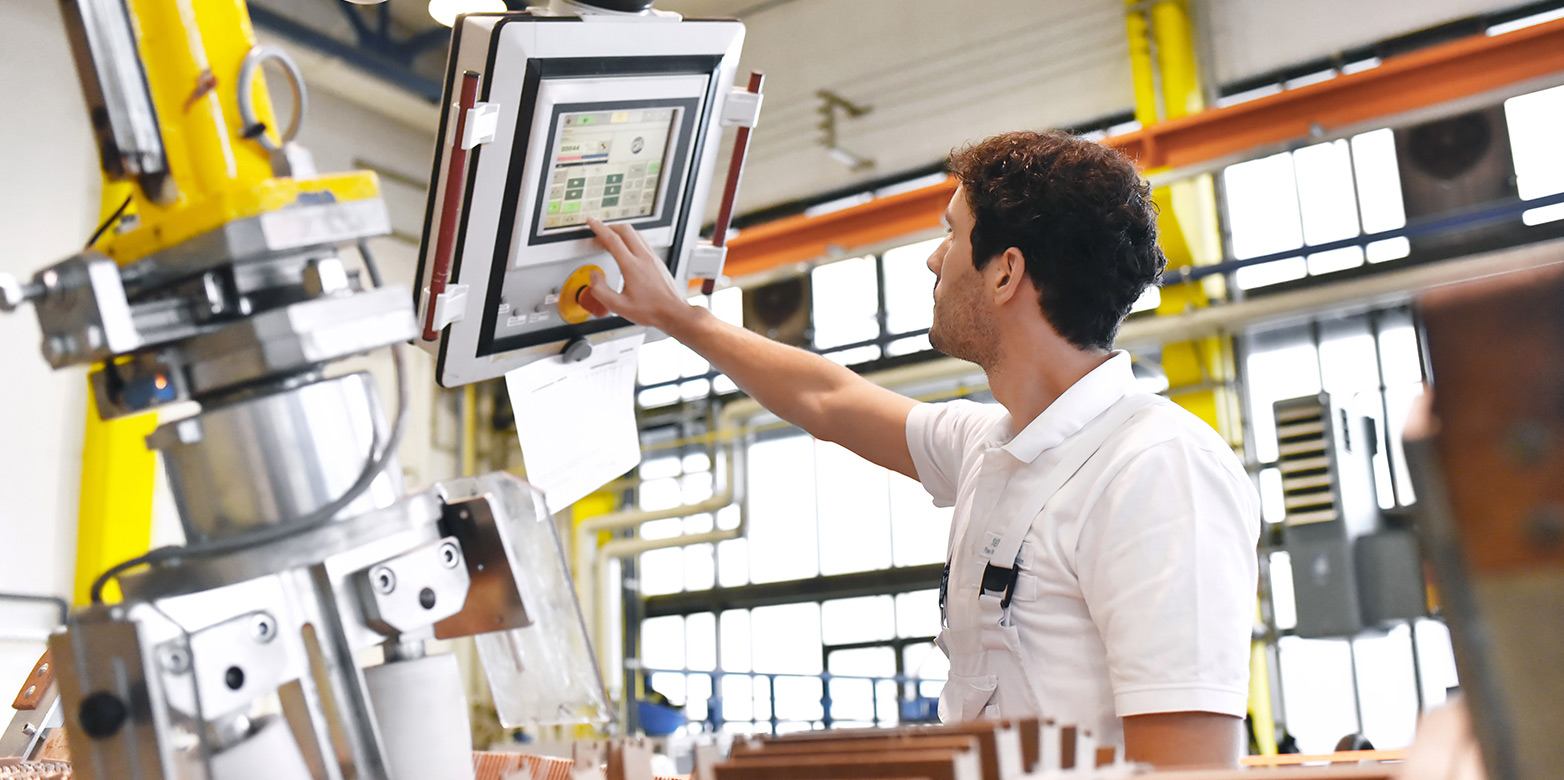
Spending on digital technology does not directly affect the competitiveness of a company; this is a well-known phenomenon in economics, also known as the ‘Solow Paradox’. The term goes back to the Nobel Prize winner Robert M. Solow, who observed back in 1987 that the personal computers introduced at that time did not seem to have any effect on the productivity statistics.
A recent KOF study commissioned by the Swiss Foundation for Research and Education Quality (SFAQ) and the Swiss Association for Quality and Management Systems (SQS) in collaboration with the Chair of Production and Operations Management (POM) at ETH Zurich looks at this paradox in relation to Switzerland. Firstly, it sheds light on the progress made by digitalisation in the Swiss economy. And, secondly, it examines the channels through which competitiveness can be enhanced by digitalisation. The study analysed data from the KOF Innovation Survey from 2002 to 2016 and the Digitalisation Survey for 2016. This survey data contains information on around 6,500 companies and is representative of the Swiss economy.
Those merely looking to increase efficiency benefit less
The descriptive results initially show a correlation between a company's digitalisation goals and its competitiveness. The latter can be improved if new business models are encouraged and value chains integrated with the help of digital technology (see T 1). For example, a tool manufacturer can offer its customers new functionalities by using digital technologies – such as sensors on the drill heads of its products – and by designing new business and revenue models that were previously not possible. It is also clear that digitalisation does not necessarily yield productivity gains: companies looking to use digital technology to increase the efficiency of their operations, for example, have often failed to achieve any competitive advantage. Above all, the econometric results show that a company's ability to innovate enables it to raise its productivity with the help of digital investment as well as organisational flexibility and appropriate IT security (more information).
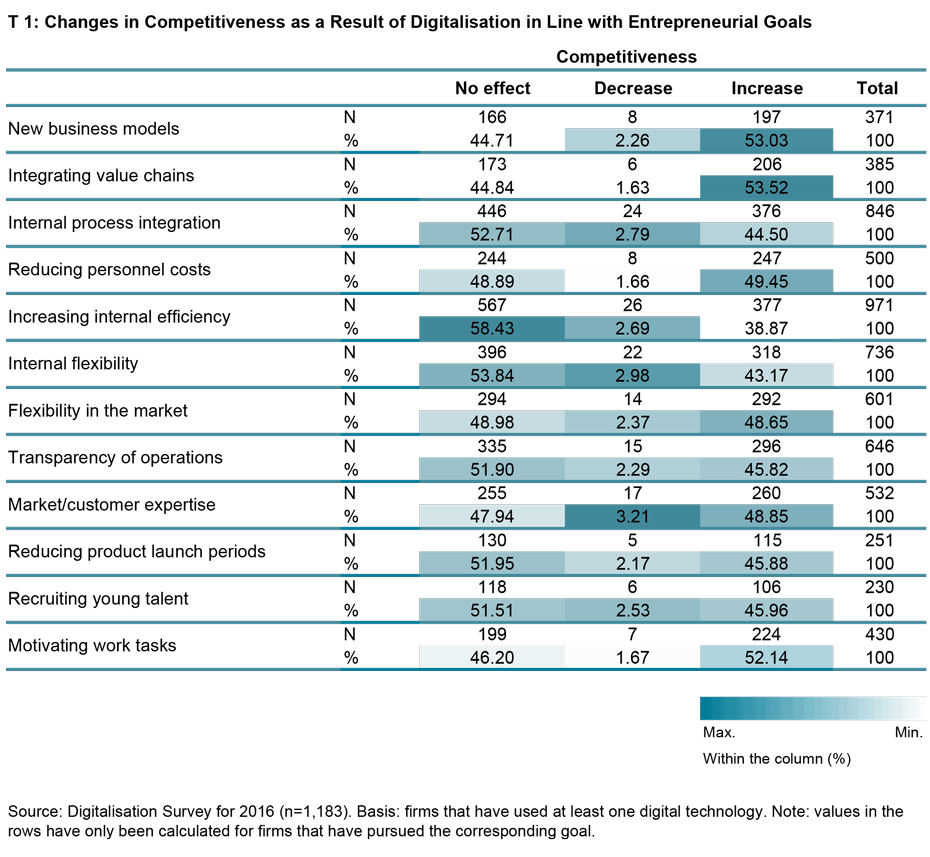
The importance of innovation
In the study, innovation is defined as the ability to create new products and market them successfully, as measured by the share of sales generated by innovative products introduced in the last three years. Chart G 7 shows that the share of sales generated by innovative products correlates positively with total factor productivity (TFP), a measure of a firm's productivity. Innovation is also crucial in relation to the use of digital technology and investment: the authors find that competitiveness is improved by digital investment in cases where firms have high levels of innovation and therefore manage to successfully offer innovative goods and services. However, firms that only market improved or modified products and services or are not innovative at all generally derive no productivity gains from IT investment.
There are a few possible explanations for this phenomenon. It is more likely that firms with high levels of innovation manage to compensate for the additional cost of digital investment by selling new products. Digital components in new products and services such as sensors increase their market potential. Consequently, innovation includes not only the ability to create new technologies but also the commercially successful marketing of these products. Moreover, innovation must be used in a targeted way. Firms in the study that cut their production costs by using process innovation derived no productivity gains from their IT investment.
How can innovation be implemented within firms?
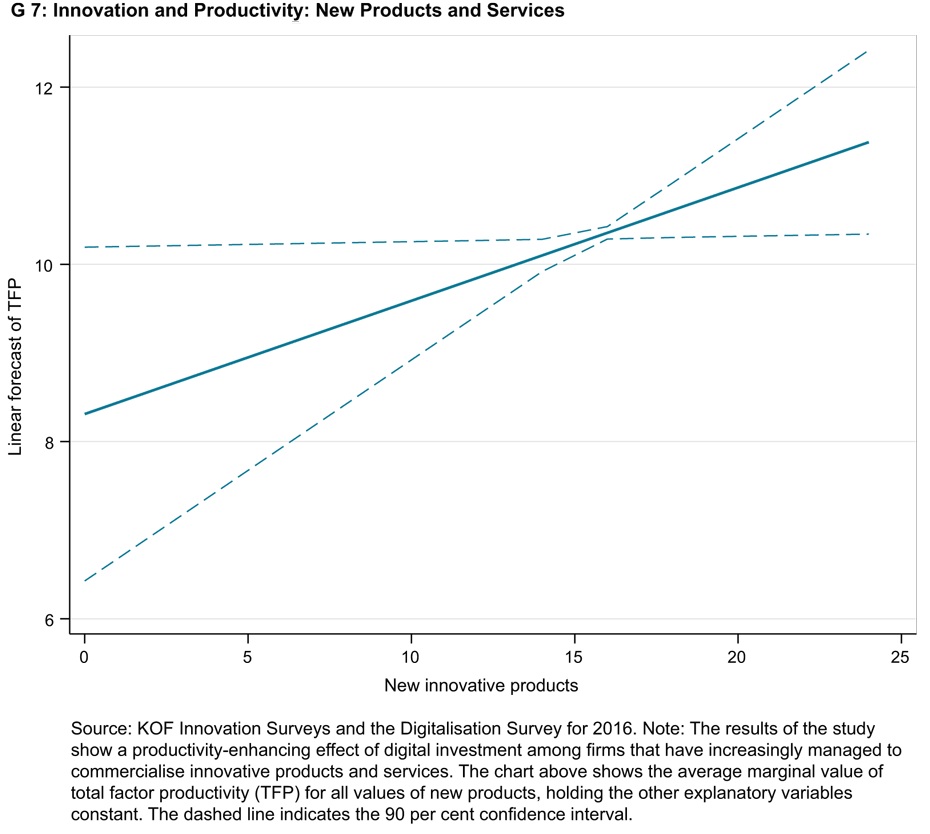
In order to benefit from IT investment it is apparently important for a spirit of innovation to be integrated into the corporate culture. This is not yet the case everywhere. Participating in innovation processes appears some way down the list of priorities in terms of desirable employee skills. Table T 2 also shows that companies with more than 250 employees are most likely to value this quality. Furthermore, participating in innovation processes is most in demand among firms in the ‘modern services’ sub-sector and significantly less so in the construction industry, for example.1
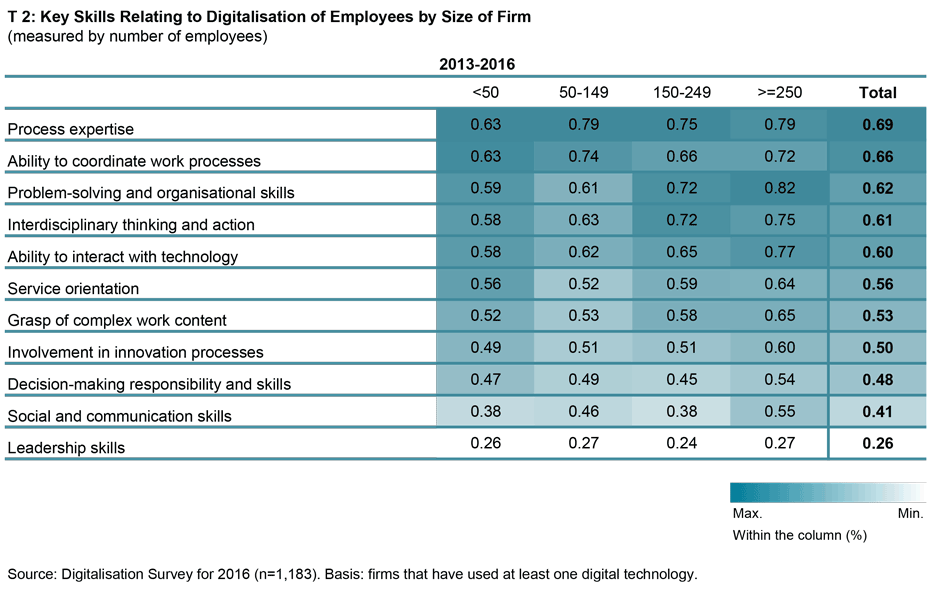
Sometimes strategic objectives need to be adapted to foster a culture of innovation at all levels of a company. When asked about their digitalisation goals, firms most frequently mentioned increasing internal efficiency and process integration. However, the goals of creating new business models and integrating value chains are of great importance in order to benefit from IT investment as a result of innovation. Nonetheless, these goals were mentioned quite rarely (see G 8). Those seeking to encourage innovation and increase productivity therefore need to pursue a targeted digital transformation strategy.
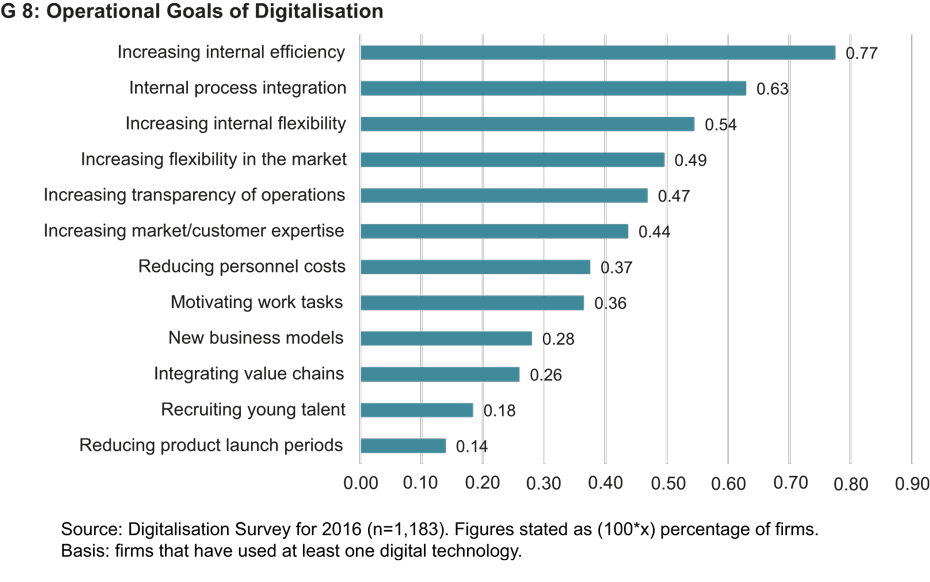
----------------------------------------
1) The ‘modern services’ sub-sector includes banking and insurance, telecommunications, media, information technology, and technical and non-technical business services.
Literature
Beck, M., Plekhanov, D. und Wörter, M. (2020): Analyse der Digitalisierung in der Schweizer Wirtschaft. KOF Stud. 153. external page https://doi.org/10.3929/ethz-b-000432882
Contact
KOF FB Innovationsökonomik
Leonhardstrasse 21
8092
Zürich
Switzerland
KOF Konjunkturforschungsstelle
Leonhardstrasse 21
8092
Zürich
Switzerland